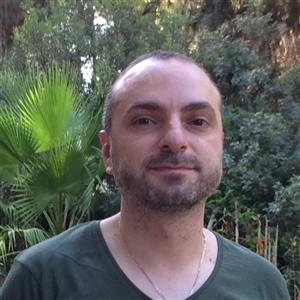Jonathan Bogale-Demissie is a medical graduate working at TwinsUK (Department of Twin Research and Genetic Epidemiology) as a Clinical Research Assistant and a child of hard-working Ethiopian immigrants.
“At a recent King’s panel discussion and talk about the life of the late great Dr Harold Moody that I began to understand the importance and value of shining a light on what makes us different. This is because I believe that our differences are where the beauty of the kaleidoscope of humanity shines through the most. I’ll be attempting to capture that and present it to you (in small readable doses, of course) by contributing to this blog on a monthly basis. This will consist of the same questions answered by gloriously different, lovely people working here at TwinsUK. I hope that it catches on and expands to the rest of the universe outside of this office.”
 Our second interview is here! Just before that I wanted to briefly talk about how important it is that we appreciate and value the diversity in others in these changing times especially. I can’t emphasize that enough. Going with what we’re told is right in regard to who or what we should love and embrace and finding out for ourselves are vastly different things, the more of the latter we do, the better.
Our second interview is here! Just before that I wanted to briefly talk about how important it is that we appreciate and value the diversity in others in these changing times especially. I can’t emphasize that enough. Going with what we’re told is right in regard to who or what we should love and embrace and finding out for ourselves are vastly different things, the more of the latter we do, the better.
This brings us to one of the stars of Twins UK, the most generous soul in the office and this month’s interviewee, Andrew “Andy” Anastasiou who had thoughtful insight into diversity and what it meant to him…
My role at the Department of Twin Research
I’ve been working at the Department of Twin Research at KCL for about 11 years. For the first ten years my role was providing general IT support for my colleagues in the department, but over the last twelve months, I transitioned to the data team, where I work as an operations assistant, I now mainly deal with the collection, storage and distribution of the department’s data.
What kind of culture did you grow up with? / What do you know about your family history?
My ethnic background for as far back as we know and remember, is Greek Cypriot. My father came to the UK to find work back when Cyprus was still a British Colony, in the early 1950s. He went back to Cyprus several years later to get married, and returned to London shortly after, with my mother in tow, in the early 60s. My siblings and I were all born in London and brought up as Greek Orthodox Christians. We spoke a mixture of Greek and English at home and were sent to Greek school on Saturday mornings, so we could learn to read and write Greek, too.
What customs and values has your family instilled in you?
The customs that we continue to observe are the main religious celebrations, such as Easter and Christmas. We also acknowledge some of the major national holidays, but don’t really celebrate these in any way.
My parents have always been relatively open minded and they’ve instilled these values in us through example. We’ve often been told the old parables from the bible, as examples of how to be decent and were generally taught to always be honest, fair and kind and to try to empathise with people when figuring out how we should behave. “If you were in their shoes, how would you want to be treated?” and to that end, probably the most important value I’ve learnt, was the maxim of Doing unto others as you would have them do unto you.
What do you understand of diversity and what do you feel we should do to understand and embrace it?
We all have characteristics that define us as individuals, like our ethnicity, gender, sexuality, religion, abilities etc. Some of these we are born with and might not be able to change, while others might develop or change during the course of our lives. I think diversity in a group, comes from including people with as broad a range of these defining attributes as possible.
I believe education is key to embracing diversity. Since we aren’t born with prejudices, I think this needs to happen at as young an age as possible – initially at home and then possibly, through formal education at school. It’s easy to fear, dislike or mistrust things that are different to what we know or don’t understand, so being taught from an early age that being different is fine (and normal!), is critical in dispelling ignorance and distrust.
Embracing diversity doesn’t mean that we have to change ourselves, or compromise our individuality in any way, to fit in – just the acceptance of other peoples’ individualities and differences (if that makes sense).
Do you have any role models from a similar background as you?
I can’t think of any particular role models that stand out for me, but many of my close friends and colleagues have similar backgrounds to myself (albeit with different ethnicities and religions) and I’m frequently inspired by their good deeds and examples.
I also think that apart from having a solid group of openminded friends and family, growing up in London has also played a major role in embracing diversity, as you’re constantly surrounded by it.